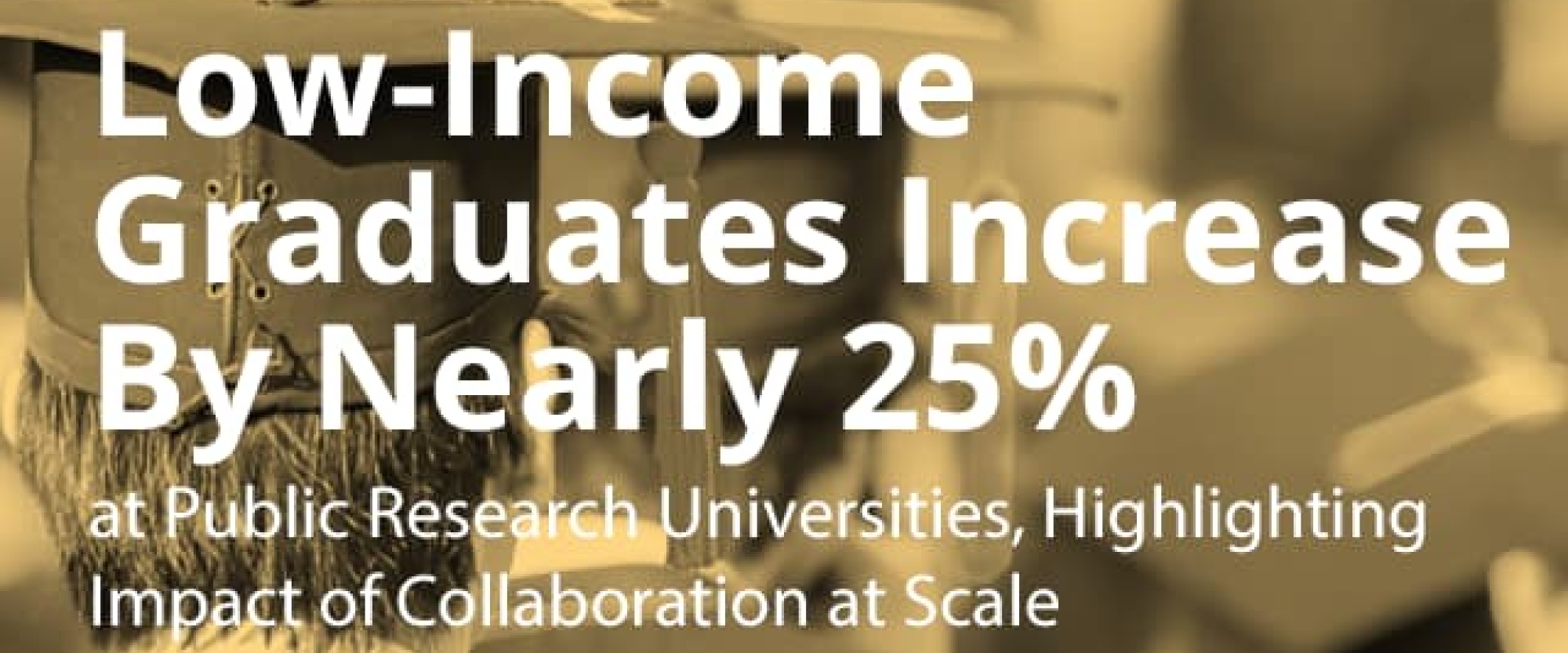Portland, Ore. – September 25, 2017 – College completion data released today by the University Innovation Alliance (UIA) shows that the number of low-income graduates has increased by 24.7 percent among participating universities over the past three years, marking significant progress toward the Alliance’s goal of graduating an additional 68,000 undergraduates by 2025.
Since launching the UIA in 2014, the group has also increased the total number of undergraduate degrees by 9.2 percent (from 79,170 to 86,436). This increased degree productivity sets the UIA firmly on the path to exceeding its public attainment goals, with an additional 94,000 graduates predicted by 2025.
“Improving outcomes for low income and underserved students has to start with transparency. Three years ago, 11 presidents and chancellors set ambitious public goals and agreed to hold each other accountable by publicly reporting on their progress,” said Bridget Burns, executive director of the UIA. “We believe the progress we’re announcing today is significant. At the same time, the opaqueness around results for Pell grantees--often a proxy for low-income students--makes it difficult for us to benchmark our progress nationally. We hope that more universities join us in setting and reporting on ambitious goals so that together we can help unlock the promise of a postsecondary degree for more students.”
The UIA is a collaboration of public research institutions committed to identifying and replicating promising innovations with the goal of increasing the number of college graduates at member institutions. The Alliance’s unique approach centers on a self-replicating model of innovation transfer by which universities working together can share lessons in group settings and then apply successful models to address challenges on their own campuses.
“The future economic competitiveness of the United States depends on higher education’s ability to innovate together in order to improve learning and outcomes at scale,” said Michael Crow, chair of the UIA and president of Arizona State University. “As we enter our fourth year, we remain committed to sharing our learnings with the higher ed community.”
In just three years, member institutions have implemented and scaled three successful initiatives, including putting in place programs that leverage predictive analytics and academic advising to identify and intervene with students at risk of dropping out of college, and building the next generation of campus leaders who can drive innovation on their campuses. Most recently, the UIA announced its fourth scaling project to provide students at its member universities with completion grants to help ensure that potential graduates aren’t derailed by financial challenges.
“At its core, the UIA will bring the American Dream within reach of many more deserving students. Our philanthropic partners are played a critical role in that work,” said Michael V. Drake, president of The Ohio State University, a founding member institution. “We’re grateful for their commitment to advancing this impactful initiative.”
UIA campuses match the philanthropic support provided by their partners at the Bill & Melinda Gates Foundation, Lumina Foundation, Ford Foundation, ECMC, Great Lakes Higher Education Corporation & Affiliates, Strada Education, and the Kresge Foundation.
In April 2018, the University Innovation Alliance will expand its efforts through a groundbreaking national convening, bringing together campuses from within and beyond the UIA to share strategies that advance student success and campus transformation.
About the University Innovation Alliance:
The University Innovation Alliance is a national consortium of eleven large public research universities spanning the geographic, economic and social diversity of our country. Together, we are working to regain America’s economic competitive edge by helping more students graduate with a high-quality and affordable education. We do this by broadening participation in higher education and implementing proven programs that significantly improve graduation rates for all students regardless of socioeconomic background. The 11 members of the Alliance include: Arizona State University, Georgia State University, Iowa State University, Michigan State University, Oregon State University, Purdue University, The Ohio State University, University of California, Riverside, University of Central Florida, University of Kansas, and The University of Texas at Austin.
Media Contact: Sarah Herring, 202-851-3606, sarah@whiteboardadvisors.com

